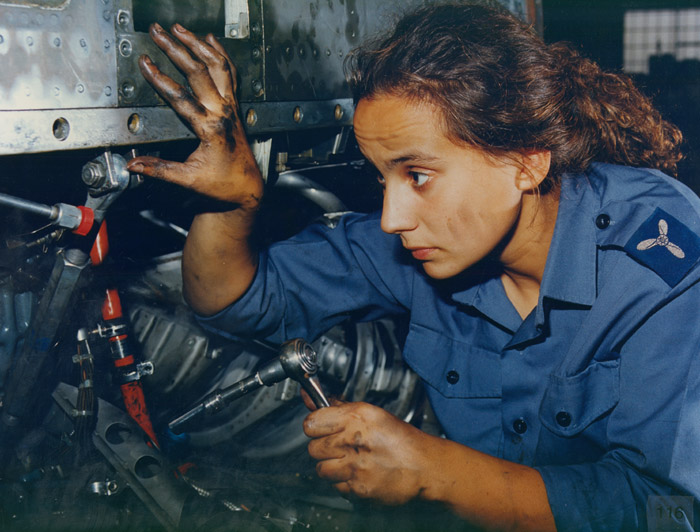
http://www.womenworking.com/women-out-earn-men-these-four-jobs
Female mechanic is no longer for only Male's job in the world, and nowadays some women want to be a mechanic. Here is an example. 

http://www.australianapprenticeships.gov.au/australian-apprenticeships-ambassadors/automotive-mechanic-fiona-lawrie
Here is an example. The woman who is mechanic in this picture is working as a Automotive mechanic and her name is Fiona. Fiona says she always had an interest in vehicles after learning how to service her car from her father, but never considered it as a career. “I studied to be an interior designer but I really didn’t enjoy it and found myself a little lost with what to do,” Fiona said. “I was making coffees at a café for an automotive repair shop owner and he asked me if I knew anyone looking for an automotive Australian Apprenticeship – and that’s how it all began." Fiona says her Australian Apprenticeship has accelerated her development and given her lifelong skills. “Every day I am learning new skills from different people and developing my own way of doing things,” she said. “The most enjoyable part has been the friends I have made - especially the other tradeswomen, I am sure will be friends for life.” Now she is planning on using her experiences and friendships to grow Fanelle, an organisation she started to support women in trades. “I am hoping to start my own mobile mechanics business as well as continuing to grow Fanelle,” she said.


